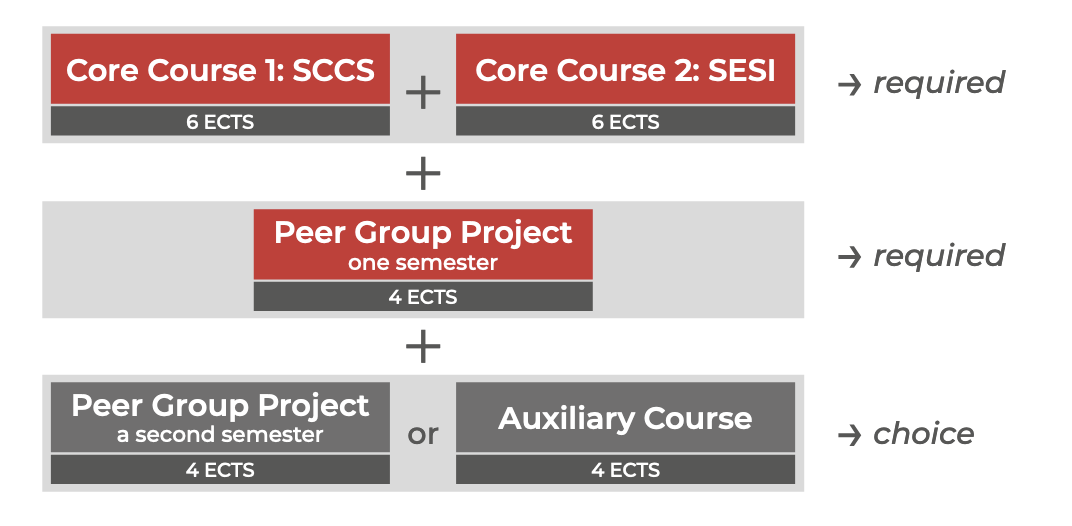
What is Sustainability Science?
Sustainability science is an emerging field of research that actively seeks improved ways to leverage social and natural sciences, along with technology, to support a transition towards sustainability. This transdisciplinary field uses a systems approach to gain a richer understanding of, and actions on, the dynamic interactions between nature and society. Many scholars argue that for effective transition, research must be co-produced in collaboration with practice. Core research questions include: ‘How can today's relatively independent activities of research, planning, observation, assessment and decision-support be better integrated into systems for adaptive management and social learning?’ and ‘How can the future be scanned in a creative, rigorous, and policy-relevant manner that reflects the normative character of sustainability and incorporates different perspectives?’
This approach draws on problem-solving and critical research perspectives, recognising complexity, contingency, contradictions, and ignorance. A key aspect of this transformative scientific inquiry is rethinking how new actionable knowledge is co-created through collaborative processes involving private enterprises, government, and organised civil society. Capacity-building for transformative sustainability science has largely been neglected in Luxembourg, despite its crucial role in strengthening society's coping mechanisms in the face of accelerating global change.
Find out more about Sustainability Science in this explanatory video in English from Ariane König who is the developer and main lecturer of the Certificate.
Contents
This transdisciplinary study programme provides tools for social learning to harness the collective intelligence of stakeholders and experts. Topics covered include energy, water and food production, waste and recycling, and sustainable housing and transport, at local, national, and global levels.
The courses offer an overview of the latest findings from scientists and practitioners on global change and transformative learning for sustainability.
In this way, complex causal chains and interdependencies can be understood and analysed. At the same time, the diverse line-up of speakers offers insights into a wide range of professional fields that promote and implement sustainable transformation and social innovation. By imparting practical knowledge, certificate participants are introduced to problems and solutions and can thus acquire hands-on experience.
Together we discuss questions such as:
- How does transformation research work and what can we learn from it?
- How can societies be involved in sustainable transformation?
- How is climate data recorded and communicated?
- How do resource systems work and how can they be improved?
- What problems and solutions do we face in the midst of a climate crisis?
Target audience
The certificate is aimed at professionals from all backgrounds and students of all study programmes (Bachelor, Master, or PhD). It offers the direct experience of engaging in and co-creating projects with a very diverse social learning group. Experiential learning opportunities, including peer group projects on key issues in Luxembourg, enable participants to make better-informed and more reflective judgements for effective action.
The programme is designed to be compatible with full-time work or study commitments. Students have a choice: they can enrol to gain the certificate as a second qualification alongside their main course of study at university, or they can take individual courses as electives that count towards their main degree.
This also applies to all students at the University of the Greater Region.
Learning objectives
Participants will develop the following competencies:
- Apply systems thinking to understand the complexity of society and the environment and their interactions.
- Respect contradictory views from different experts and interest groups on a topic, stemming from diverse experiences, values, and worldviews.
- Recognise and categorise uncertainties and tensions arising from the gap between local and global perspectives and research methods.
- Develop negotiation skills: respect, listening, compromise, and networking to find mutually acceptable solutions to complex problems ("win-win solutions").
- Develop citizen science approaches and techniques to creatively integrate the social and scientific focus of the two phases of the course.
- Understand alternative forms of social organisation and entrepreneurship to achieve a sustainable economic exchange system.
- Productively engage science and scientists in social learning processes with diverse groups of stakeholders to take concerted action on local environmental and sustainability issues.
Further key data and requirements
Click here to register. To enroll in the certificate, interested parties must register and pay a fee of €200 per semester. The certificate can be completed within two semesters, but a longer enrolment of up to six semesters is possible. The application period runs from April to September each year. You can find the exact dates under the link above. If you miss the application deadline, please contact us. It is not possible to join in the middle of a semester.
To complete the certificate, you must attend four courses and achieve a total of 20 ECTS.
The language of instruction is English, and all written assignments must be completed in English.
The courses take place once a week from approx. 17:00 to 20:30, excursions on Saturdays are possible. If you would like to complete the certificate within two semesters, you will have 2 such appointments per week in the first semester as well as some Saturday events; your second semester can be arranged in the same way, or, if you choose the Peer Group Project, these hours must be organized autonomously.
Related projects
Certificate in Sustainable Development and Social Innovation
Team

Dr. Ariane König




